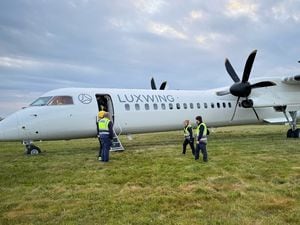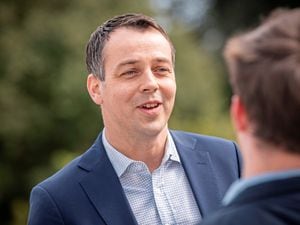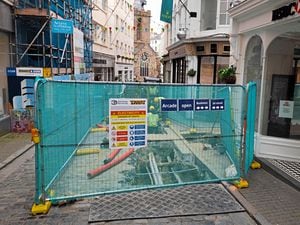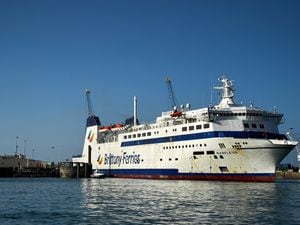Kosovo farmers here to learn Guernsey way
A GROUP of Kosovan agricultural specialists visited Le Hechet Farm yesterday, to learn local dairy farming techniques.
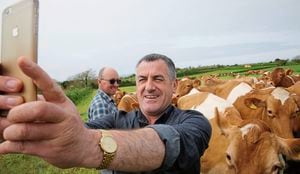
Computer systems, how they can be adapted for livestock and Guernsey breed management were the key areas of interest.
Since the Kosovo war which ended in 1999 agriculture and rural employment has struggled.
By learning the farming techniques used in Guernsey they plan to bring their industry up to European standard.
The EU funded visit from the Kosovan ministry of agriculture was led by livestock information and animal production specialist, Dr James Hanks from the University of reading.
'Kosovo has a similar size dairy industry,' said Dr Hanks.
'But they have come to see the bigger picture, see what they can achieve.
'We are trying to get good quality milk, and create a commercial industry, there are huge opportunities for them if they can get it right.'
'After having a war and virtually no animals at all, they have now tagged all animals, you will struggle to find a cow without an ear tag.'
'Now we are working with the farmers getting them recording, to get breeding plans and production systems going.
'They are just beginning to record each cow using the same information system as here, which are the good which are the bad ones, which ones are most suitable to Kosovo.'
Vice president of the Royal Guernsey Agricultural and Horticultural Society, Bill Luff, said he was impressed by what has been achieved in Kosovo.
'What I find amazing is, we had a delegation 15 years ago, it seems to me that in the last ten years they've covered the ground that took us 50 years,' said Mr Luff.
'I think the animal department should be proud of what they have achieved, but we can now help them make the next step.'
'After the war they had nothing, lots of small herds, now they are moving into trying to get self-sufficient in milk production so they don’t have to import, this will create rural labour opportunities.'
'They must now improve the quality of their livestock, importing the best genetics, to do this they need to know how their cows are performing.'
'They have a great information database up, but they now want to move to the next stage, create herd books and milk recording, eventually that will feed through to genetic evaluation, the same that we have here.
Head of livestock production's in Kosovo, Mr Arsim Memaj, thanked Guernsey farmers for their assistance.
'We would like to thank you from the ministry of agriculture of Kosovo,' he said.
'Kosovo has been at war, our agriculture requires review.
'We want to take as much of your knowledge and experience as we can and take it back to Kosovo.'

